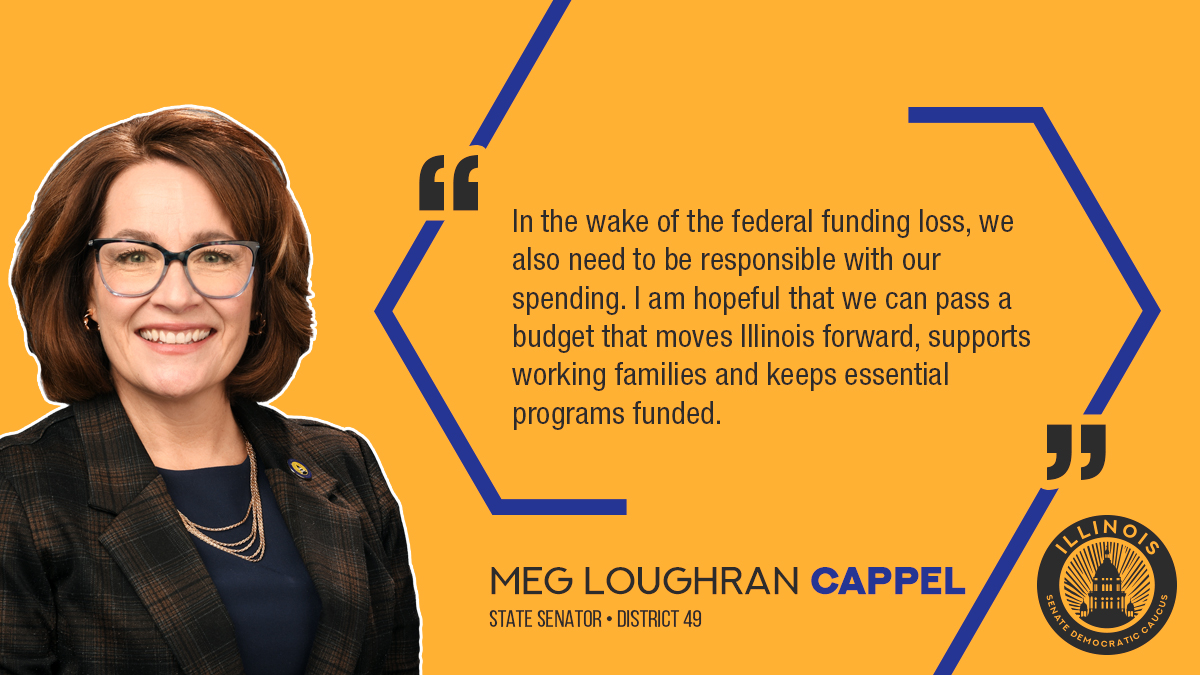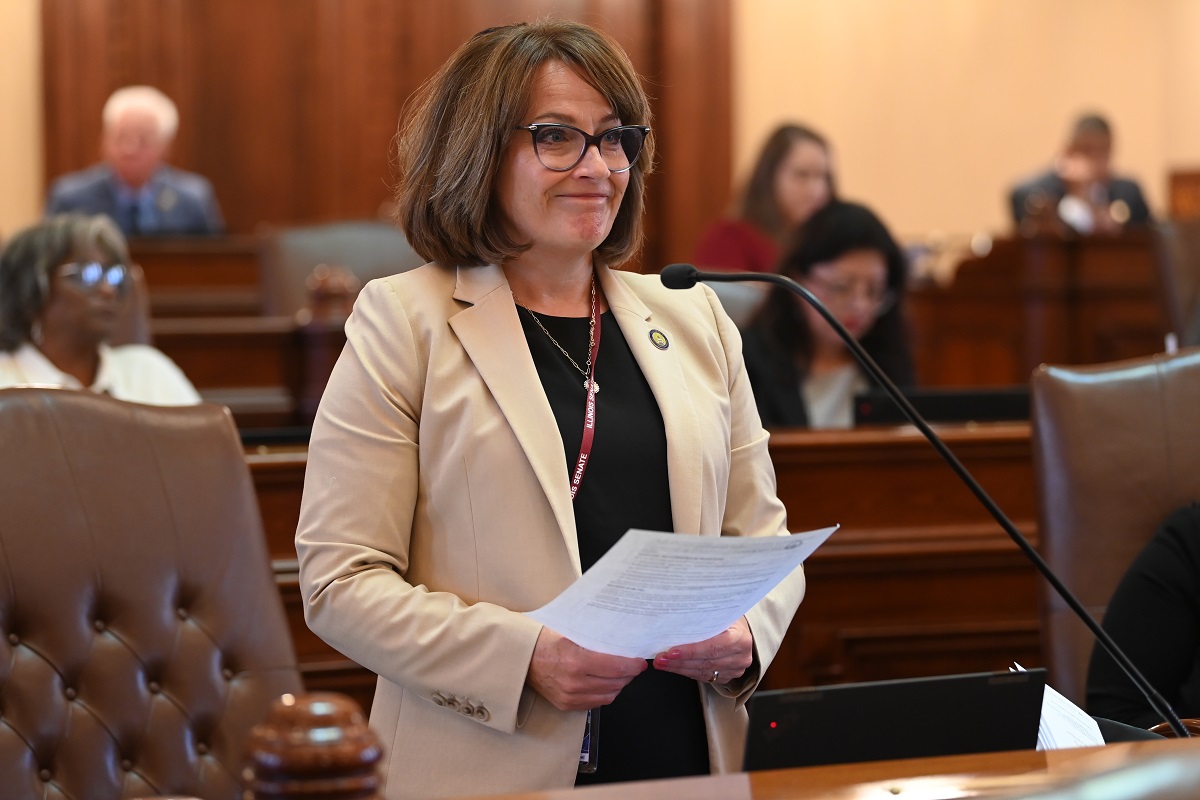 SPRINGFIELD – State Senator Meg Loughran Cappel (D-Shorewood) released the following statement regarding the governor’s Fiscal Year 2027 budget address on Wednesday:
SPRINGFIELD – State Senator Meg Loughran Cappel (D-Shorewood) released the following statement regarding the governor’s Fiscal Year 2027 budget address on Wednesday:
“The governor’s budget proposal includes many important investments for our community, ensuring K-12 education remains funded and health and human services stays a priority.
“In the wake of the federal funding loss, we also need to be responsible with our spending. I am hopeful that we can pass a budget that moves Illinois forward, supports working families and keeps essential programs funded.”

CREST HILL – Thanks to strong support from State Senator Meg Loughran Cappel, Plainfield Park District received a total of $600,000 from the Open Space Land Acquisition and Development grant to help continue ongoing improvements.
“It might be wintertime and a lot of people aren’t thinking about their local parks, but the programming that park districts provide for our community are such an asset to Will County,” said Loughran Cappel (D-Shorewood). “I am happy to have helped secure funding for Plainfield Park District so they can continue to provide safe and fun activities for families.”
OSLAD is a cost-sharing program between state and local governments that helps communities fund land acquisition and development for parks and outdoor recreation projects. It’s become one of the most popular grant programs in Illinois. Since its establishment, OSLAD has awarded $675 million for park projects throughout Illinois.

PLAINFIELD – State Senator Meg Loughran Cappel is teaming up with the Will County Health Department to host another Coffee with Cappel event in Plainfield where residents are invited to join her for a cup of coffee and discussions about what is important in the community.
“I always appreciate our community members taking the time to share their concerns and giving me an opportunity to answer their questions,” said Loughran Cappel (D-Shorewood). “I encourage residents with ideas, feedback or questions about state services to stop by and join us.”
Each monthly Coffee with Cappel serves as an open forum for community members to engage in informal conversations with the senator and each other about issues facing the region and the state.
This month’s event will be held Thursday, Jan. 22 from 10-11 a.m. at Ten Drops Coffee, located at 14903 S. Center St. in Plainfield. Coffee is provided.
The event is free and open to area residents. Those with questions are encouraged to contact Loughran Cappel’s office at 815-267-6119 or visit her website at SenatorLoughranCappel.com.

CREST HILL – To show appreciation and lift the spirits of local seniors, State Senator Meg Loughran Cappel is collecting cards for residents in long-term care facilities for Valentine’s Day.
“Seniors are a big part of our community, and writing them a note can remind them they’re appreciated,” said Loughran Cappel (D-Shorewood). “Taking time out of our days to do a little act of kindness can go a long way to make someone feel loved this Valentine’s Day.”
Loughran Cappel is encouraging residents to write handmade or store-bought cards to help bring joy to older adults living in various senior facilities across the 49th District. Children are also encouraged to participate.
Cards can be mailed or delivered now through Feb. 6 to Loughran Cappel’s office located at 20660 Caton Farm Rd., Unit D in Crest Hill.
For more information, contact Loughran Cappel’s office at 815-267-6119.
Page 1 of 73